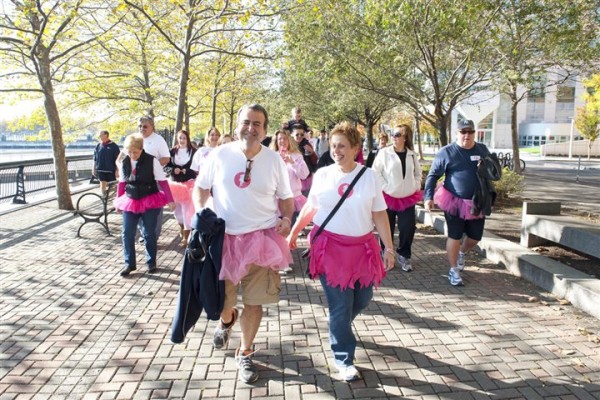 (BPT) – Hearing a doctor utter the words “breast cancer” often leaves women with dozens of initial questions: “How will I manage all of the demands of daily life while in treatment? How will it affect me physically? How do I tell my family?” But a diagnosis of metastatic breast cancer, the most advanced stage of the disease after it has spread to other parts of the body, can be particularly difficult.
(BPT) – Hearing a doctor utter the words “breast cancer” often leaves women with dozens of initial questions: “How will I manage all of the demands of daily life while in treatment? How will it affect me physically? How do I tell my family?” But a diagnosis of metastatic breast cancer, the most advanced stage of the disease after it has spread to other parts of the body, can be particularly difficult.
“There’s a real dark side to cancer. Like many women with this disease, I experience fear, sadness and physically feel the impact of my diagnosis,” says Linda Carey, who was first diagnosed with breast cancer in 2003 and metastatic breast cancer in 2006.
Shortly before Carey’s first diagnosis with breast cancer, her husband Bob started a personal photography project – The Tutu Project – to express his feelings about some significant life changes, including the Careys’ move from Arizona to Brooklyn, New York. When Carey was diagnosed, the project evolved into a way to help make her laugh and allowed her to shift her focus away from her cancer journey. Over the years, the project has further evolved into a way for the Careys to provide support to others. Through the Tutu Project, Bob photographs himself wearing only a pink tutu in a variety of poses and settings around the world – walking through fields, standing atop the Grand Canyon and even jumping across the Brooklyn Bridge – all in the hope of offering inspiration, laughter and perhaps a smile while in chemotherapy, while raising funds to cover incidental costs not covered by health insurance for those living with breast cancer.
Bob notes, “This can be a very scary road to travel. But Linda’s cancer has taught us that life is good, dealing with it can be hard, and sometimes the very best thing—no, the only thing—we can do to face another day is to laugh at ourselves, and share a laugh with others.”
Carey says she relies on finding the humor in the little things and the support of friends and family to get her through the toughest times. The approximately 175,000 American women living with this advanced form of breast cancer often face challenges distinct from those diagnosed with an earlier stage. For many like Carey and her husband Bob, the desire to share their stories and connect with other members of the metastatic breast cancer community is an essential part of the journey.
“In those moments when I feel alone or afraid, I use journaling or drawing to help express my emotions, negative or positive. These are my forms of self-therapy and I can’t begin to describe the value that they have added to my life.”
To help create awareness of metastatic breast cancer and find strength and solidarity in these experiences, Carey is encouraging women to participate in the nationwide #MBCStrength photo and story-sharing campaign. Women with metastatic breast cancer can share their own photos and stories that capture the essence of their journey living with MBC on Twitter using the hashtag #MBCStrength or on Facebook. Photos posted on the Facebook page will be considered for a display in Times Square on Oct. 13, 2015, Metastatic Breast Cancer Awareness Day.
Carey’s personal account is also featured at www.MyMBCStory.com, an educational website tailored for women with metastatic breast cancer developed by AstraZeneca with input from breast cancer advocacy organizations LBBC and Metastatic Breast Cancer Network. Those who share their stories on Facebook also have an opportunity to be featured on the site, which in addition to first-person stories also provides tools and information tailored to women with metastatic breast cancer and their loved ones.
Educational resources are important for many women facing a metastatic breast cancer diagnosis, because despite the wealth of information available about breast cancer, there are very few resources specific to metastatic disease.
“As the fight continues for more metastatic breast cancer resources, research and financial support, my hope is that we and the broader community do not lose sight of one key truth: our disease may not be curable but it’s up to us how we choose to live our lives.”
To read stories from women living with metastatic breast cancer visit www.MyMBCStory.com.

